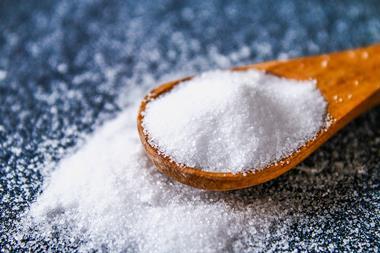
A review of the 50p per unit threshold for the Minimum Price for Alcohol (MPA) policy in place in Wales has found increasing the threshold would lead to further reductions in alcohol consumption and harm, with the biggest impacts in the most deprived groups.
Reducing the MPA threshold, or removing MPA entirely, would increase alcohol consumption and harms and increase health inequalities, the study found.
Meanwhile, “significant increases in alcohol duty rates” would be needed to achieve the same reductions in alcohol-specific deaths as an increase in the MPA level, as “increasing duty does not reduce health inequalities to the same extent”, it concluded.
The report was commissioned in July 2024 by the Welsh government to build on previous analyses from 2018 that modelled the impact of the initial introduction of MPA in Wales.
Using the latest available data and the most recent version of the Sheffield Tobacco and Alcohol Policy Model, it sought to model the estimated impact of changes to MPA rates on alcohol-related harm, as well as what changes in alcohol duties would be required to achieve the same impact.
It found that increasing the MPA threshold to 65p per unit would reduce population level alcohol consumption by an estimated 0.3 units per drinker per week (a 2.7% reduction). This reduction would be smaller for lower MPA thresholds (eg –0.6% for 55p) and larger for higher thresholds (up to –9.4% for an 80p MPA).
Increasing the MPA threshold would also reduce the number of people drinking at hazardous and harmful levels, with a 5.7% reduction in the number of harmful drinkers for a 65p MPA, the study estimated.
For all modelled MPA thresholds, the largest changes in alcohol consumption were estimated to occur in the most deprived groups. By far the largest reduction in deaths under an increase in the MPA threshold was estimated to come from the most deprived quintile of the population. Removing MPA entirely would lead to a larger increase in deaths in the most deprived groups, the study estimated.
Duty increases ‘less effective’
Increasing alcohol duty was far less effective than MPA at reducing alcohol-specific deaths, the study found. To achieve the same reduction in alcohol-specific deaths as an increase in the MPA threshold to 65p, alcohol duties would have to rise by 5.8%.
Conversely, removing MPA entirely was estimated to have the same impact on alcohol-specific deaths as a 2% cut in duty rates.
However, while increasing the MPA threshold in Wales would save the NHS money – a 65p MPA was estimated to save £14.9m over 20 years – it would also lead to an estimated £109m hit to Treasury coffers from reduced alcohol consumption.
By contrast, increasing duty rates would lead to increases in government revenue, with a 5.8% duty rise leading to a £35m boost to the Welsh Treasury, according to the modelling.
The study is likely to put further pressure on policymakers in England to introduce minimum unit pricing for alcohol. Wales joined Scotland in introducing the measure in 2020, and both countries have reported a decrease in alcohol consumption and a reduction in deaths and hospital admissions related to alcohol-specific conditions.


















No comments yet